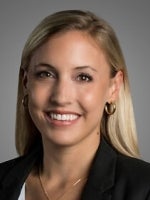Earlier this month, the Eleventh Circuit (the “Court”) issued a decision in a False Claims Act (“FCA”) case against a medical supplier that offers welcome clarity for companies facing whistleblower allegations. In Vargas ex rel. Alvarez v. Lincare, Inc., 2025 U.S. App. LEXIS 9084 (11th Cir.), the Court emphasized high pleading requirements FCA plaintiffs must satisfy to survive a motion to dismiss. Specifically, the court held that it is not enough to allege a general scheme; the FCA plaintiff must also plead, with detail, how the scheme caused the actual submission of false claims to the government. The decision is especially significant in the healthcare context with respect to Anti-Kickback Statute (“AKS”) based FCA cases. The court made clear that the plaintiff must do more than include conclusory allegations that one purpose of the payment was to induce referrals—it must include details as to the defendant’s intent.
In Vargas ex rel. Alvarez v. Lincare, Inc., the relators, former employees of medical supplier Lincare, Inc. and its subsidiary Optigen, Inc., alleged that defendants violated the FCA by: (1) improperly billing CPAP accessories under codes for ventilator accessories, or “upcoding”; (2) improperly waiving co-payments through inclusion of a waiver form with every CPAP set-up shipment; (3) automatically shipping CPAP replacement supplies without the required patient or provider request; and (4) making payments to set-up technicians called “CFTs” who were also employees of prescribers and whose payments were tied to referrals of patients, in violation of the AKS. The relators alleged that these schemes resulted in false claims for payment being submitted to TRICARE, the U.S.’s healthcare program for service members.
The District Court for the Middle District of Florida previously dismissed relators’ complaint under all four theories, holding that it failed to meet Federal Rule of Civil Procedure 9(b)’s standard for pleading fraud with particularity. The Eleventh Circuit reversed the District Court as to only the upcoding theory, finding that relators’ examples of specific patients whose supplies were allegedly upcoded, their claim numbers, and the amount TRICARE reimbursed for the supplies satisfied Rule 9(b). The Eleventh Circuit affirmed the District Court’s holding for the remaining three theories.
For these remaining three theories, the Eleventh Circuit found that relators had generally alleged fraudulent schemes, but without enough detail or particular examples—specifically, examples of how the alleged fraud resulted in false claims being submitted to the government. The Court declared that “[w]ithout a clear link between the alleged scheme and actual claims, the complaint failed. … In the end, an FCA claim must do more than sketch out a theory. It must allege facts showing that a false claim was actually submitted to the government.”
In regard to the copay waiver scheme, for example, the relators alleged that a waiver form was provided with each CPAP set up, but did not identify any specific claims or patients whose copays were improperly waived and who subsequently had their devices billed to TRICARE. The Court refused to make the “inferential leap” that the alleged conduct must have resulted in false claims. In dismissing this theory, the Court also noted that the relators did not allege any direct knowledge of the defendants’ billing activity or claims data.
The Court also included firm language in upholding the District Court’s dismissal of the AKS claim. Relators alleged that the defendant paid Contract Field Technicians (“CFTs”), who installed the CPAP devices and often had influence over which supplier’s device was installed, “setup fees” of $50 per setup but would pay the more prolific CFT referrers $225 per installation. Beyond setup fees, Optigen allegedly courted referring providers with meals, gifts, and other incentives. The Court held that this claim was properly dismissed because the relators again failed to plead causation: relators failed “to tie the CFTs’ payments to any actual referrals. They identify no patient referred by a CFT, no instance in which a CFT influenced a prescribing decision, and no facts showing that CFTs played any role in the referral process (whatever that may be). They point to CFTs who purportedly received high fees and made many referrals, but they offer no detail—no conversations, no meetings, no influence over any prescriber’s decision.” As a result:
what the complaint does show is that Optigen paid CFTs to do a legitimate job: set up CPAP equipment in patients’ homes. That work likely included travel, equipment setup, training, and follow-up support. Merely paying people for doing that work—even if the rates vary—does not violate the law.
The upshot is that the relators never pleaded how CFTs induced referrals or why the compensation—paid for services rendered—should be viewed as anything other than payment for work done. And without facts bridging payment and referral, the complaint fails to sufficiently plead a kickback scheme.
The Court noted that a “barebones” and conclusory allegation “that the payments were made—‘in part’—to induce referrals” also fails to meet the Rule 9(b) standard.
This decision serves as a reminder that the False Claims Act targets false claims—not regulatory violations, not internal misconduct, and not abstract theories of fraud. A complaint cannot simply allege a fraudulent scheme and assume the scheme resulted in the submission of false claims for payment by the government. The complaint must, instead, spell out the alleged fraud in detail—including when, where and how it occurred—and specifically allege how the actions alleged actually caused the submission of false claims. The Eleventh Circuit found that speculative and unsupported allegations, including those related to causation, are insufficient, and District Courts should dismiss complaints containing such allegations.




 />i
/>i

